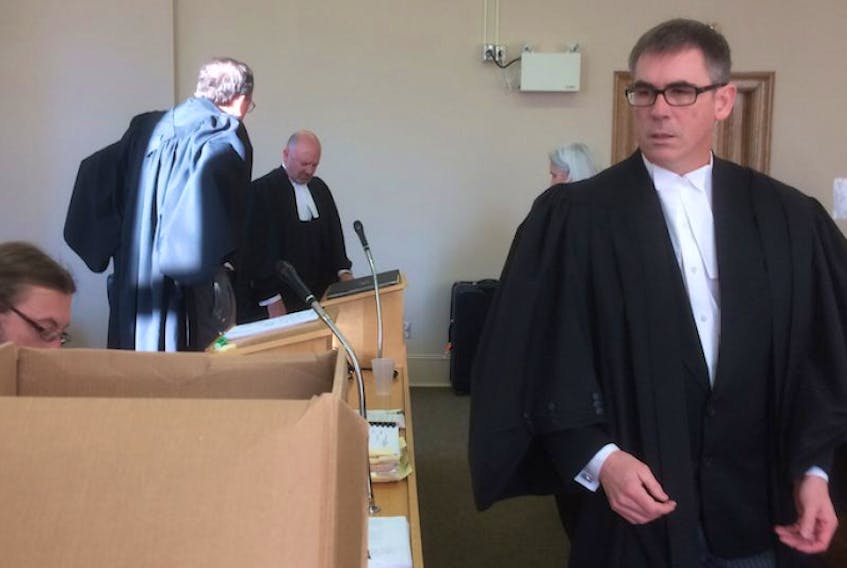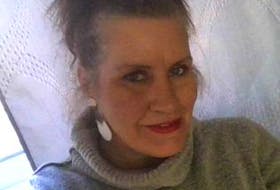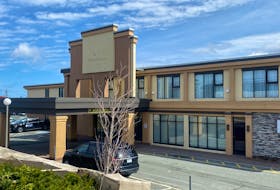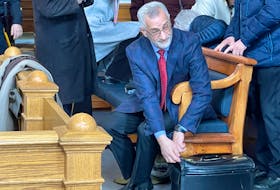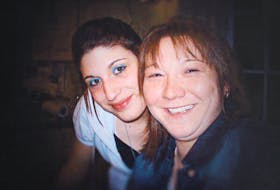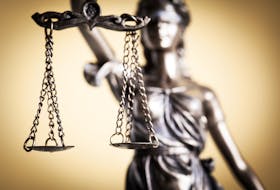It was a high-stakes trial.
The stakes for the four John Does and the other claimants lined up behind them: loss of compensation from the church and no legal validation of who they feel played a part in their torment.
The stakes for the Episcopal Corp.: possible multi-millions in compensation to victims of physical and sexual abuse several decades ago and the financial ramifications on its holdings of having to pay out those funds.
It also was expected to set a precedent for the church in other civil cases in the country involving victims abused by members of lay orders.
Four test-case John Does represented more than 60 claimants from the era late 1940s to ’60s who said the church should be held liable for the abuse they suffered at the hands of certain Christian Brothers. The decision also affects the unresolved cases of some 20 others represented by various lawyers.
The Newfoundland and Labrador Supreme Court trial began in April 2016 and took a 5 1/2 month hiatus at the end of June 2016 as lawyers prepared written arguments. The court case clewed up in December when the lawyers presented their arguments before Justice Alphonsus Faour.
All four John Does —in their 70s at the time of their testimony — described in excruciating detail the physical and sexual abuse they suffered decades ago as boys in the infamous orphanage. The court subsequently heard from a number of witnesses, including psychologists, a psychiatrist, canon law experts, a historian and the archbishop.
Geoff Budden, head of St. John’s law firm Budden and Associates — a longtime lawyer for Mount Cashel victims of various eras — launched the lawsuit in 1999.
Besides arguing church oversight of the Brothers, Budden and his lawyers also argued that the church had a duty of care once any of its official learned of the abuse.
Budden insisted the church knew or ought to have known about the abuse — trial evidence included testimony and statements from some men who had been at the orphanage as children who said they reported the abuse to their parish priest inside and outside the confessional.
Budden told the court the bishop of St. John’s certainly knew there were sexual improprieties occurring at Mount Cashel by January 1954 and steps weren’t taken to deal with the reported abuse.
“The boys were still being molested, year after year after year,” Budden said as the trial closed.
But the church maintained the Christian Brothers lay order was independent and the two organizations merely shared a common faith.
The church — specifically the Episcopal Corp. of St. John’s — never denied the boys were abused, but said the orphanage was solely run by the Christian Brothers and therefore the church was not responsible for abuse at Mount Cashel.
Even so, lawyers for the church also countered the testimony about the effects of the abuse on the men by arguing there could have been other reasons for problems in their lives, such as the early death of a parent, financial and career setbacks, and even a family history of drinking.
The court heard, among other things, claims of boys at Mount Cashel being beaten as they lined up for meals, having to eat porridge filled with dead grubs and stealing scraps from vats of swill consisting of patients’ leftovers from city hospitals. There was also the recounting of an incident of a boy being dragged by a rope into a frigid swimming pool where the children were forced to bathe with bars of Sunlight soap to save on hot water, of a boy screaming as he was beaten in the shower because he’d been late and was ducking in and out of the cold water, of sexual acts committed at night by a Brother roaming through the young boys’ dorm, of a traumatized boy eating a chocolate bar and drinking pop while being sexually assaulted by the canteen operator because he had no idea what else to do.
One John Doe was acknowledged to having been beaten about 4,500 times while at Mount Cashel in the 1950s. While he was not sexually abused, his lawyers contended an incident in which the boy was forced to shower while a Christian Brother watched, and then was made to bend down while the Brother beat him in the buttocks was an act of “sexual sadism,” though church lawyers disagreed.
Based on information from a financial witness, Budden and Associates pegged the combined impact on the lives of the four John Does at around $8 million.
The trial also heard conjecture of how early officials knew of child abuse at the orphanage — several decades before it was reported in the media.
A former resident, not part of the case but from the same generation of Mount Cashel boys, was called to testify when he contacted lawyers after reading about the trial in The Telegram. The man said he was sexually stalked at the orphanage by one of the Brothers and told the court that he told priests about incidents in and out of confession.
Among the stacks of documents entered as evidence from both sides was a roster from 1957 submitted by Budden that painted a chilling picture of who was in the day-to-day life of the boys at the orphanage. Among the 10 Christian Brothers serving at Mount Cashel in February of that year, four were ultimately – decades later — convicted of crimes against children.
While the statement of claim was initially filed in 1999, it took a detour of many years due to a jurisdictional fight with the Christian Brothers.
The Brothers were eventually taken off the statement of claim after they went bankrupt. Lawyers have said some payments to claimants made from the bankruptcy weren’t enough to compensate for the abuse. The Christian Brothers apologized in 2014 to all victims of sexual abuse by members of the order.
Although the church fought the lawsuit, as the case wound down in court the archdiocese was also looking forward to its conclusion.
“While the Archdiocese of St. John’s was never responsible for the operations of the orphanage or the school at Mount Cashel, we have great sympathy for those who suffered and continue to suffer as a result,” Archbishop Martin Currie told The Telegram outside court in December 2016.
During the civil trial, Currie addressed Mount Cashel victims from the witness stand.
“You feel the hurt of these young men who were there in trust of the Brothers — men who were there to love and care for them — and they betrayed them. …There was a breach of faith, a breach of trust, so this caused great pain to them,” Currie said.
“I see the sadness and I regret very much this happened, and I have great sympathy for the suffering which they have endured at the hands of the church.”
But his statement wasn’t warmly received by the two John Does in court to hear it.
“I think it was only formality. You are out in the public — ‘I better say this for the cause,’” a retired teacher who was physically and sexually abused at Mount Cashel told The Telegram.
“Overall, the effect of it is the Catholic church is a business,” said the man’s boyhood friend from Mount Cashel — they were both expelled after defending each other after a
violent Christmastime episode with a Christian Brother. “So it was like listening to the businessman who is protecting his assets.”
Evidence at the civil trial was upsetting at times for the two John Does who most regularly attended after concluding their own testimony.
One of them, a military retiree who walked out of the court one day after hearing testimony, told The Telegram he understands the principles of what lawyers do to break down liability, but said, “It all gets too much.”
The Mount Cashel scandal is most associated with the abuse of boys of a different era, the 1970s and ’80s — the scandal that prompted the 1989-90 Hughes Inquiry. That era was not part of the civil case and the boys from earlier decades were not part of compensation from the provincial government, when it settled a block of cases from the ’70s and ’80s more than 20 years ago.
The 1940s-to-’60s-era abuse cases were ruled ineligible for action against the provincial government because of a legal decision years ago.
One of the Does, the retired teacher, said he broke down after watching the Hughes Inquiry in the 1980s and it was then the man shared his own tortured past with his family for the first time.
The Hughes report was never admissible in the civil trial as its mandate was to examine the failings of the justice system and related agencies in responding to abuse allegations primarily from the 1970s and ’80s. But a small portion of videotape was allowed to be played — part of the questioning of an archdiocese official of several decades ago.
The boys’ orphanage was closed in 1990 and the building was demolished in 1992. A memorial park was erected on one small corner of the former grounds.

